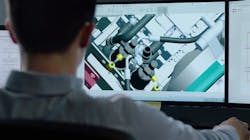Deep dive into heavy-duty hydrogen fuel cell tractors
Hydrogen to power commercial vehicles is a hot topic these days. There seems to be something in the news about it every day. And hydrogen just so happens to be the fuel of choice for fuel cells to power vehicles.
Interestingly, fuel cells are not new; they have been around for more than 70 years. More recently — the last 20 years — they have been used in buses and for the last 10 years there has been growing use of them in cars.
However, fuel cells in trucks is very new. But given all the announcements, pronouncements and information floating around about hydrogen fuel cells in Class 8 trucks, NACFE decided to try to sort through the “noise” to provide some guidance to the industry as a whole.
We recently published a Guidance Report, Making Sense of Heavy-Duty Hydrogen Fuel Cell Tractors.
As a result of our research, we developed five major findings:
- Hydrogen fuel cell trucks are just starting to see real-world use and their adoption is being driven by regional or national considerations that are much bigger than what exists for trucking fleets.
- Battery electric trucks should be the baseline for hydrogen fuel cell electric vehicle (HFCEV) comparisons, rather than any internal combustion engine alternative.
- As for all alternatives, fleets should optimize the specifications of HFCEVs for the job they should perform while expecting that the trade cycles will lengthen.
- The future acceleration of HFCEVs is likely not about the vehicles or the fueling but more about the creation and distribution of the hydrogen itself.
- Finally, the potential for autonomous fuel cell trucks to operate 24 hours a day adds significant opportunity for making sense of capital and operational investment in hydrogen.
While we started working on this Guidance Report to evaluate the viability of commercial hydrogen fuel cell trucks, one big takeaway is that the topic is much bigger than trucks. Trucking is not the industry that will help fuel cells scale; other industries and utilities will have to participate for that to happen. We liken this to dominoes that need to fall into place before we can accurately predict the future of fuel cell vehicles.
We will continue to watch — and comment on — developments in the hydrogen fuel cell space as well as adding to our work on battery electric trucks as we work through the messy middle to an all-electric future.
About the Author

Michael Roeth
Executive Director
Michael Roeth is the executive director of the North American Council for Freight Efficiency. He serves on the second National Academy of Sciences Committee on Technologies and Approaches for Reducing the Fuel Consumption of Medium and Heavy-Duty Vehicles and has held various positions with Navistar and Behr/Cummins.
